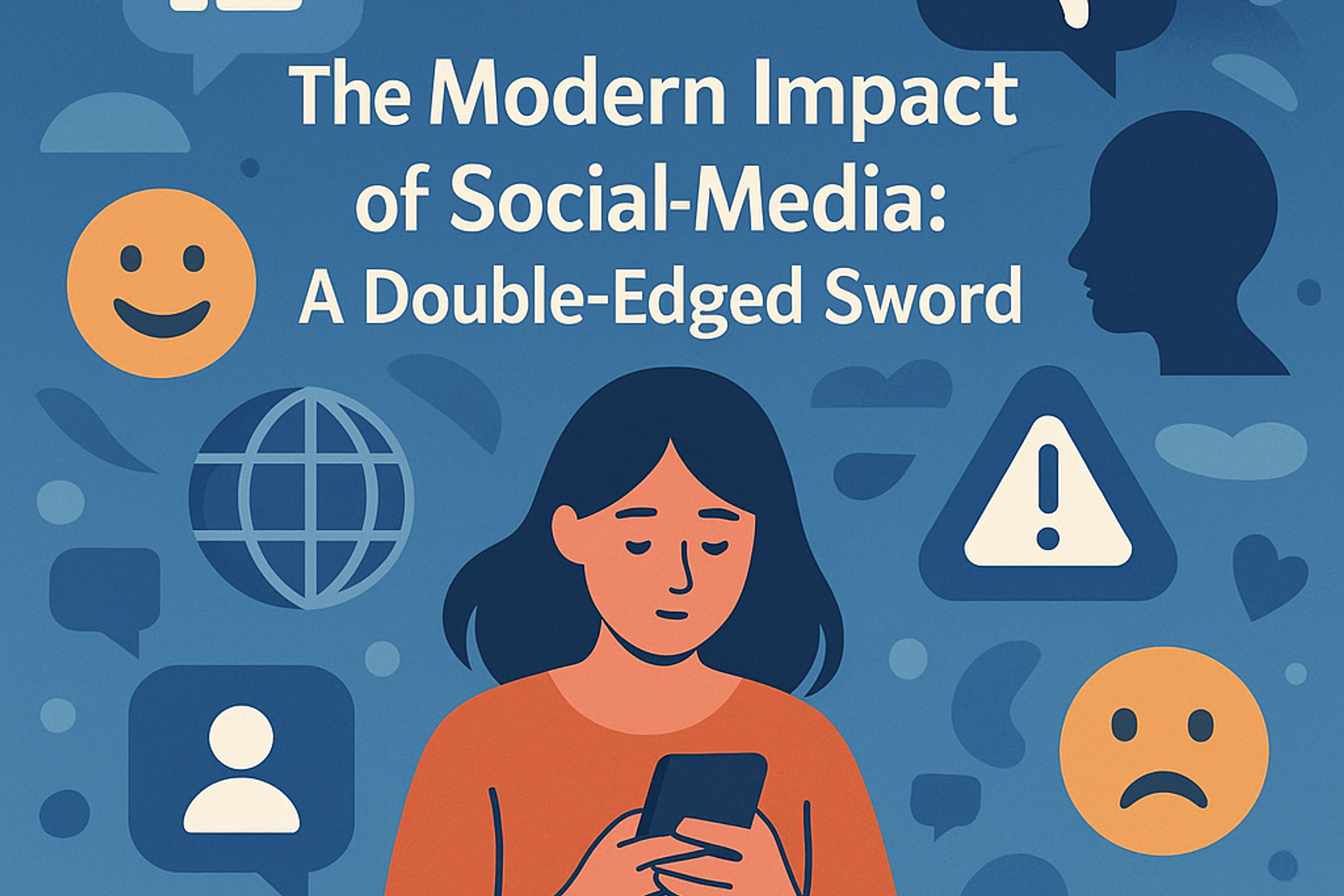Thursday, July 17, 2025
The Modern Impact of Social Media: A Double-Edged Sword

In today’s digitally driven world, social media has become an inseparable part of everyday life. Platforms like Instagram, Twitter (now X), Facebook, TikTok, and LinkedIn have revolutionized the way people communicate, express themselves, access information, and build communities. While these platforms offer undeniable benefits, their impact on individuals and society at large is a complex mixture of both positive and negative effects.
One of the most significant positive impacts of social media is connectivity. No matter where someone is in the world, they can stay in touch with friends, family, and colleagues. Social media has helped bridge geographic gaps, making long-distance relationships more manageable and allowing people to share their lives in real-time. It has also given rise to global communities that share common interests, from niche hobbies to major social movements like #MeToo and #BlackLivesMatter.
Moreover, social media plays a pivotal role in the dissemination of information. News travels faster than ever, allowing people to stay informed about global events within seconds. It has democratized information sharing, giving a voice to those who may have been ignored by traditional media. Small businesses and creators, for instance, can now reach vast audiences without needing a large marketing budget.
However, these advantages come with significant drawbacks. One of the most discussed issues is the effect of social media on mental health. The constant exposure to curated lifestyles and filtered images can lead to feelings of inadequacy, anxiety, and depression, especially among younger users. The pressure to maintain a certain online image can also erode authentic self-expression and promote unhealthy comparisons.
Misinformation is another major challenge. While social media allows information to spread quickly, it also enables the rapid spread of false or misleading content. This has been particularly evident during global events like the COVID-19 pandemic and political elections, where misinformation has fueled confusion, fear, and even violence.
Additionally, the addictive nature of social media cannot be overlooked. Platforms are designed to keep users engaged through algorithms that promote endless scrolling and notifications. This can lead to reduced productivity, shorter attention spans, and even dependency similar to substance addiction.
Despite its flaws, social media is not inherently harmful. It is a powerful tool whose effects largely depend on how it is used. With increased digital literacy, stronger regulations, and more mindful consumption, society can better harness the positive aspects of social media while mitigating its dangers.
In conclusion, social media in the modern era is a double-edged sword. It has the power to unite, educate, and inspire—but also to isolate, mislead, and harm. Understanding and managing its impact is crucial for ensuring it remains a force for good in our interconnected world.

